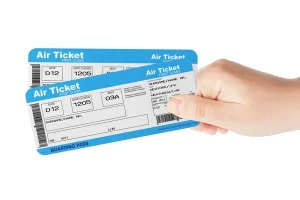Before submitting an application, it’s important to understand the basics of a credit card. It’s a lending tool from a financial institution that lets you make purchases and repay them later. Interest may be added if the balance isn’t cleared by the deadline.
Each card comes with a borrowing limit, which caps your available credit. Using your card wisely helps establish your credit profile, which influences future loan opportunities.
Know When You’re Ready to Apply
Applying for your first credit card should be a planned step. Ask yourself if you have steady income, a budget, and the ability to pay off monthly balances. This helps avoid debt early on.
Many people apply too early and risk rejection or poor management. Starting with basic financial discipline puts you in a stronger position.
Check Your Credit Report
Even if you’ve never had a credit card, you may still have a credit file from student loans, utility bills, or being an authorized user. Check your report through services like AnnualCreditReport.com.
This allows you to spot errors and understand what lenders will see when you apply. Fixing inaccuracies in advance can improve your chances of approval.
Choose the Right Type of Card
There are different types of cards tailored to first-time applicants. A secured card requires a deposit and is easier to obtain, while student cards are designed for those in college.
Consider which card aligns with your current financial profile. Don’t focus solely on rewards—look at the interest rate, fees, and the card’s long-term usefulness.
Compare Issuers and Offers
Every bank has different approval criteria, interest rates, and benefits. Use comparison websites or visit individual issuer sites to review your options.
Check details like annual fees, grace periods, and whether the card reports to all major credit bureaus, which is vital for building credit.
Prepare Your Application Details
You’ll need to provide personal information, including your Social Security number, income, housing situation, and employment status.
Make sure everything is accurate. Inconsistent or false data can result in immediate rejection or a request for additional verification.
Apply Through a Trusted Online Platform
Most banks now allow online applications. Stick to official websites or well-known financial platforms to ensure security during the process.
Once submitted, decisions can come instantly or within a few days. Some cases may need manual review, especially for first-time applicants.
What to Do if You’re Denied
Rejections happen. If your application is denied, don’t panic. You’ll receive a letter explaining the reason, which can help you improve your application for next time.
Focus on building your credit score or income stability before applying again. Applying too often can hurt your score further.
🔔 Step-by-Step: How to Choose the Right Credit Card for You
Once Approved, Start Building Good Habits
Activation is just the beginning. Set up your online account, create payment reminders, and use the card for small purchases.
Paying your balance in full each month avoids interest charges and helps you build a solid credit history over time.
Monitor Your Progress and Credit Usage
Use credit monitoring tools to track your score and watch your usage. Stay under 30% of your credit limit and pay on time.
As you demonstrate responsible behavior, you may qualify for higher limits or better cards in the future. It’s a long-term process—stay consistent.




